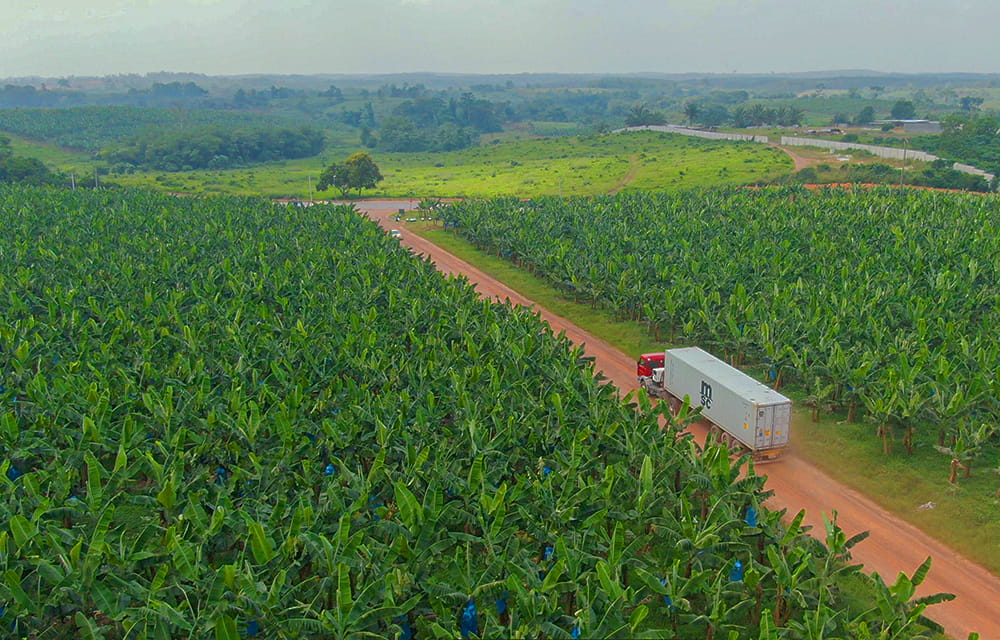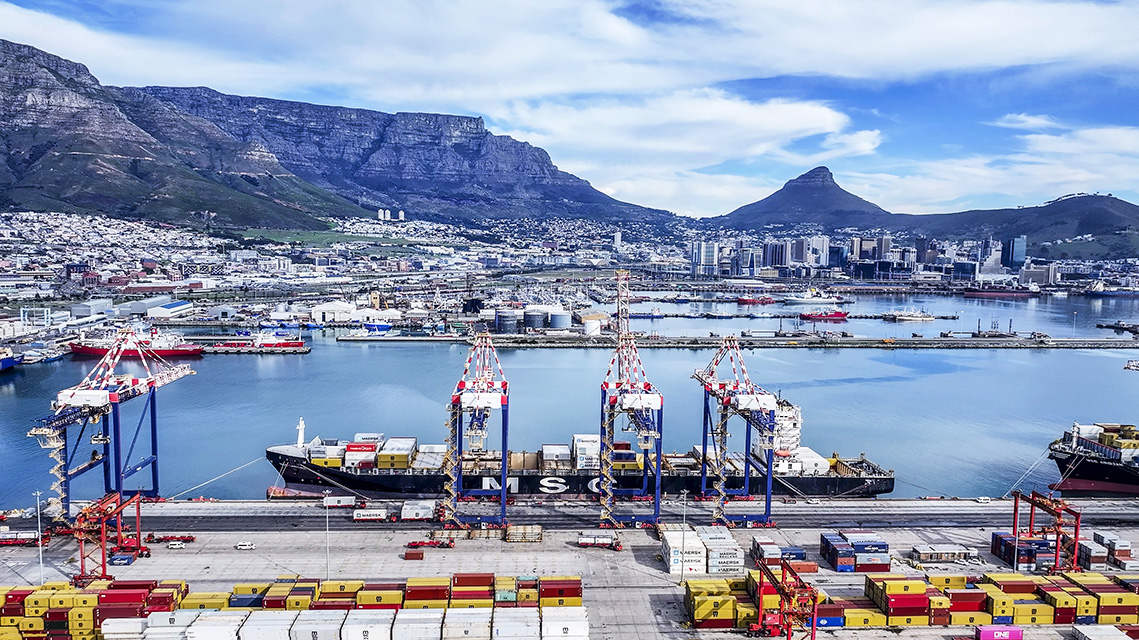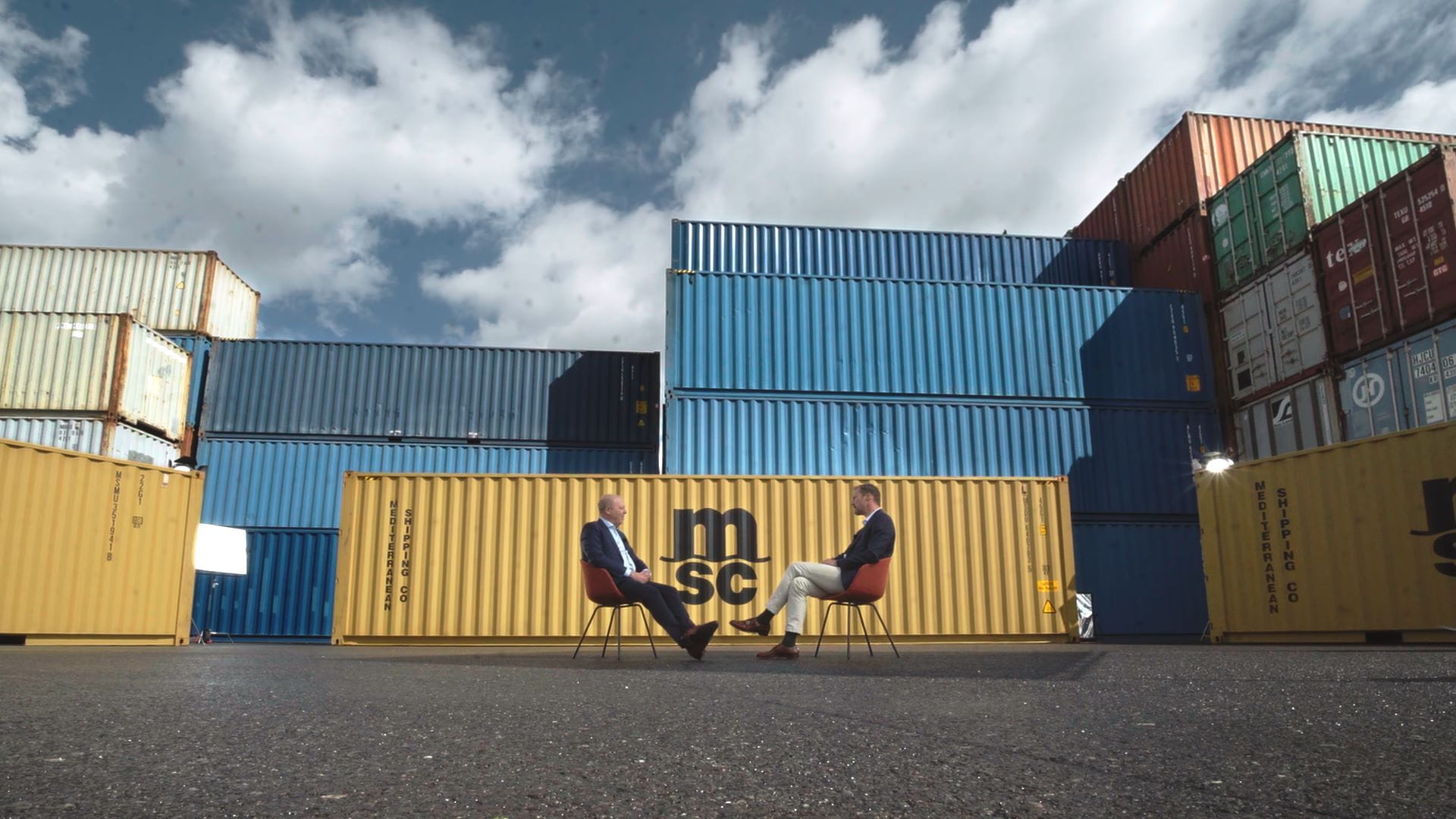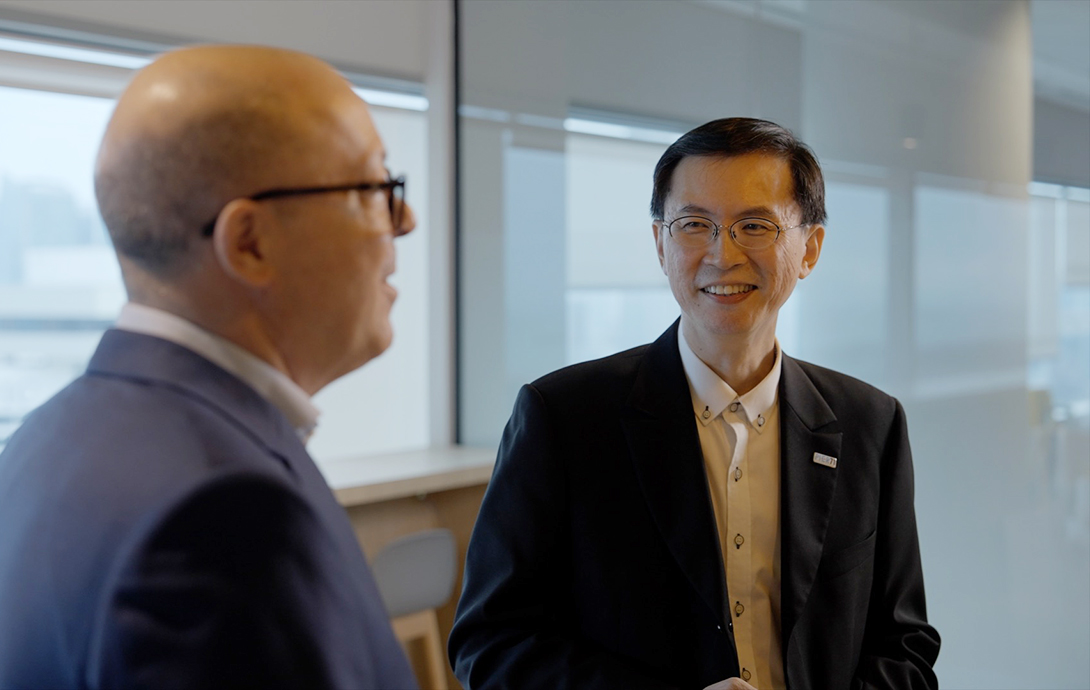
/pt/newsroom/stories/digital/2023/msc-digital-talks-episode-8-the-best-of-msc-digital-talks
Watch the “Best of” MSC Digital Talks
20/12/2023
How is digitalization impacting shipping? Find out in our “Best of” MSC Digital Talks! Over the past two years, André Simha has been speaking to industry leaders and experts about the digital developments shaping shipping.
Digitalization isn’t just a buzzword, it’s a business strategy. And it’s one that impacts many areas of MSC and our partners worldwide, with implications on how we work together and supply chains at large.
To dive deeper into shipping’s digital transformation, we have been speaking to industry leaders and experts as part of our MSC Digital Talks series. Filmed in different locations over the past two years, these discussions are led by Andre Simha, MSC’s Chief Digital and Innovation Officer.
Join the conversation
All episodes are available on YouTube, covering everything from cyber-security to smart containers and the electronic Bill of Lading (eBL).
Follow Andre Simha and #MSCDigitalTalks on LinkedIn to watch the latest episodes and share your thoughts.
Read Episode 8 Transcript
Andre Simha: Hello, everyone! The time has come to look back at our Digital Talks. I feel incredibly fortunate to have had the opportunity to engage with exceptional experts and leaders in the maritime industry to understand the impact of digital transformation in our sector. Themes ranged from the role of technology to overcoming challenges, leveraging smart data to track cargo to improving supply chain decisions, and of course, the importance of data standards. So, let’s hear what everyone has to say, starting with why digitalization is a key imperative our industry:
EMBRACING DIGITALIZATION TO OVERCOME CHALLENGES AND DRIVE TRANSFORMATION (00:50)
Ho Ghim Siew: Over the past two years we've seen a lot of supply chain disruptions due to COVID-related port lockdowns and one off incidents like the Suez Canal and other "Black Swan" events. Or even the geopolitical risks that we are seeing and encountering. What we have seen is that schedule reliability is still one of the biggest pain points and that itself has brought a lot of knock-on effects into ports. And we do see bottlenecks here and there. But I believe that these pain points could be overcome with digitalization and data.
Jan Hoffman: Optimisation of processes is necessary. It complements the one big transition that the industry is facing, which is the energy transition. We must have zero greenhouse gas emissions by 2050 from shipping. How do we get there? There are alternative fuels, there are new technologies, there are all types of supporting measures. Digitalisation is one of them, like port optimazation is one of my favorites.
Raphaelle Hemmerlin: You see we have more than just a container to deliver. Sucafina is a coffee merchant, and we are a family company like MSC. We need to have coffee delivered at the right time, at the right place and with the quality preserved. Every cargo trip has a story to tell. There are insights and data we want to leverage.
Andre Simha: No doubt that digitalization is the future of our shipping industry. Now let's hear about generating and leveraging data.
LEVERAGING DATA FOR FASTER AND SMARTER DECISIONS (02:34)
Gene Seroka: So, if we can make data-driven decisions based on facts and get that information faster so others can make their decisions, I think we're adding value to the supply chain community.
Raphaelle Hemmerlin: There is a lot of data that are going through our ecosystems right now, and it's a wasted opportunity not to connect them together. I think we need to think smarter about smart data.
Christian Xu: We need to open our arms, to give a hug to the data. The tech won't lay off you, but they will help you. You need to grow with the new tech knowledge.
Andre Simha: Everyone also highlighted the value of using industry standards as developed by DCSA, the Digital Container Shipping Association, which is a neutral nonprofit, organisation established in 2019 by several of the largest container shipping lines.
SETTING STE STANDARD FOR DATA QUALITY AMD SEAMLESS OPERATIONS (03:36)
Andre Simha: And I think we're all in agreement that we need good data, not just data.
Iwan Van Der Wolf: Sure. And especially standardised data, otherwise we are not really able to share easily. And from that perspective, as a port community system, we really embrace the DCSA, which is really together with us, defining new standards.
Phillipe Lestrade: Our clients have understood the benefits of going online and we are very happy. But we need standards to be able to improve system's interoperability.
Ho Ghim Siew: We work very closely with DCSA under your leadership, with MSC, as well as MPA on how we could share data to ensure that we all have that kind of seamless handshakes and the visibility we need.
Andre Simha: I think that's the future. I'm so happy we can run these pilot projects together
CONCLUSION (04:40)
Andre Simha: As a conclusion, I hope you found these insights valuable. I can only encourage you to watch the full videos since there’s much more in each episode. Once again, I'd like to express my gratitude to everyone who contributed to these talks. They demonstrate the industry's remarkable alignment towards a digitally transformed and innovative future.
Follow me on LinkedIn if you want to keep the conversation going.




